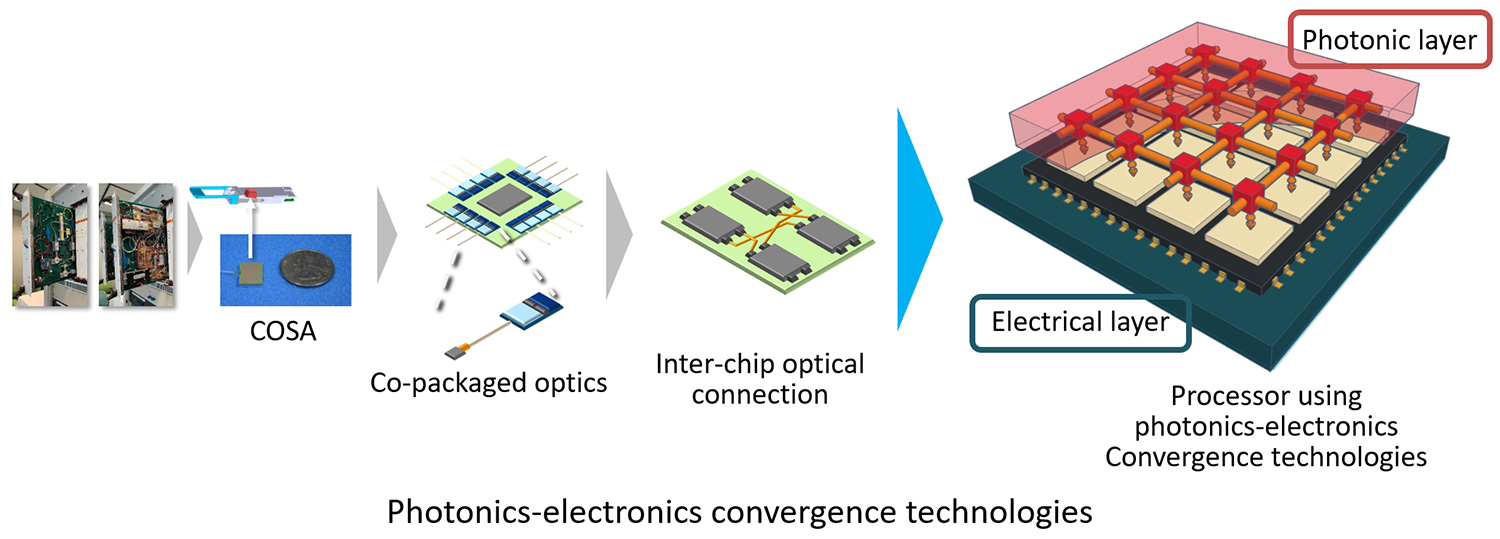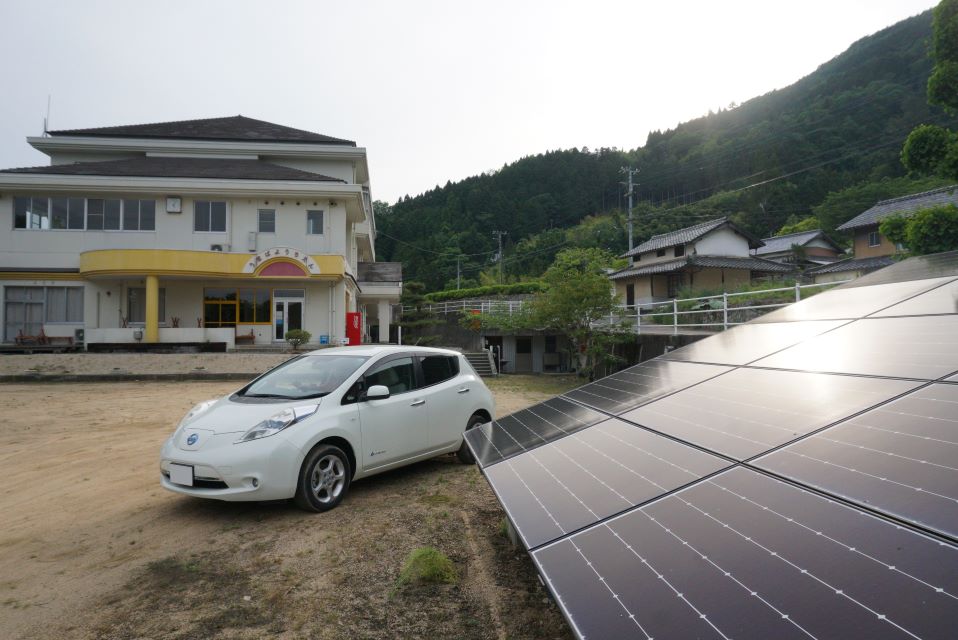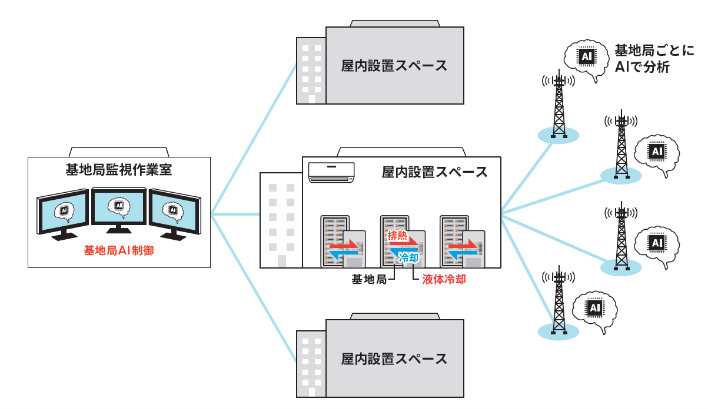Promote local production and local consumption of electricity and zero emissions, strengthening resilience by constructing a distributed grid through the use of renewable energy and DC power supply technologies
NIPPON TELEGRAPH AND TELEPHONE CORPORATION
Outline
Utilizing the DC power supply technology and ICT technology that NTT has been using as a power source for telecommunications facilities for more than 100 years, solar power generation facilities, storage batteries, electric vehicles, and demand facilities will be linked by DC to build a distributed power grid with higher reliability and less power conversion loss.
Description
At present, the electric power system in Japan is mainly composed of AC, which is easily transformable and suitable for long-distance transmission, and DC transmission is applied to some of the frequency conversion stations and the Kitahon Interconnection Line.
On the other hand, NTT has been using DC operated facilities for more than 100 years in order to ensure stable power supply and reduce power conversion losses. In addition, DC facilities such as rechargeable batteries for electric vehicles and smartphones, solar power generation facilities, fuel cells, and storage batteries are becoming widespread.
The advantage of DC power supply is that the power of the storage battery can be used directly without intervening the power converter. Since the failure rate can be suppressed low due to the absence of the converter, high reliability can be achieved, and high efficiency can be realized because the conversion loss is small.
In addition, while the three elements of voltage, phase, and frequency must be matched in AC, in DC, only the voltage can be matched so that it is easy to control the mutual interchange of electric power in multiple locations. With distributed power grids that take advantage of these advantages and characteristics utilizing renewable enegy, NTT Anode Energy will provides a social infrastructure that promotes zero emissions and enhanced regional resilience.
Other Innovation Challenges
To realize the IOWN concept that contributes to the realization of global energy conservation
NIPPON TELEGRAPH AND TELEPHONE CORPORATION
Similar Innovation Challenges
Accelarating the penetration of renewable energy resources with “Open Energy System”
Sony Group Corporation
Achieving net-zero carbon emissions from plant factories using full artificial lighting
Taikisha Ltd.
Advanced technology for buildings providing energy-saving and comfortable indoor environment (under Net Zero Energy condition)
Mitsubishi Electric Corporation
AI control reduces base station power consumption by up to 50%
KDDI CORPORATION







